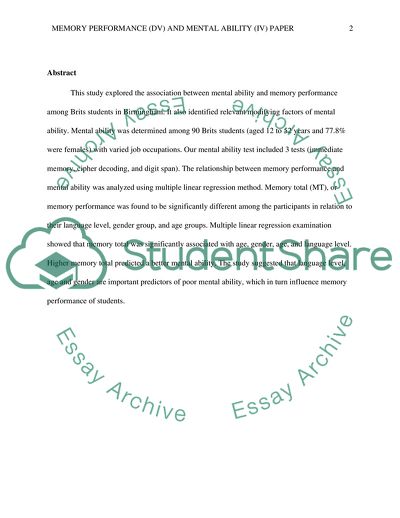Cite this document
(Memory Performance and Mental Ability Under Exam-Like Situations Case Study, n.d.)
Memory Performance and Mental Ability Under Exam-Like Situations Case Study. https://studentshare.org/psychology/1854849-memory-performance-and-mental-ability-under-exam-like-situations
Memory Performance and Mental Ability Under Exam-Like Situations Case Study. https://studentshare.org/psychology/1854849-memory-performance-and-mental-ability-under-exam-like-situations
(Memory Performance and Mental Ability Under Exam-Like Situations Case Study)
Memory Performance and Mental Ability Under Exam-Like Situations Case Study. https://studentshare.org/psychology/1854849-memory-performance-and-mental-ability-under-exam-like-situations.
Memory Performance and Mental Ability Under Exam-Like Situations Case Study. https://studentshare.org/psychology/1854849-memory-performance-and-mental-ability-under-exam-like-situations.
“Memory Performance and Mental Ability Under Exam-Like Situations Case Study”. https://studentshare.org/psychology/1854849-memory-performance-and-mental-ability-under-exam-like-situations.


